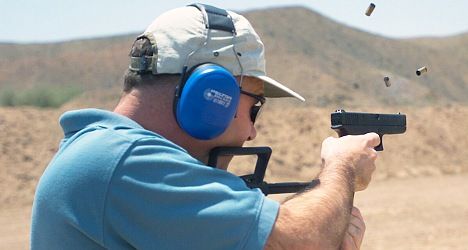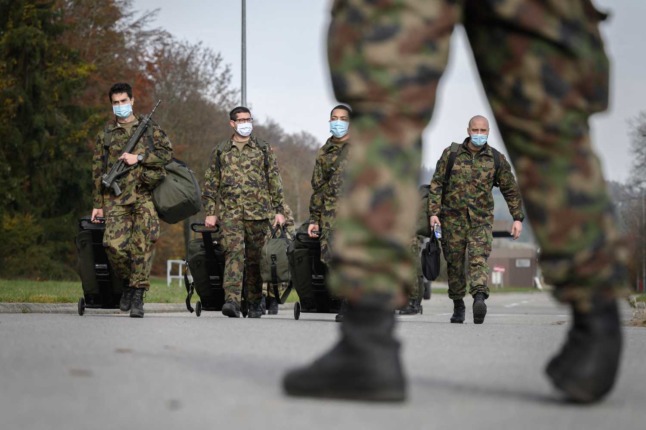The “Smell the Cordite” website – equipped with loud gun shots and videos of shootings – is also aimed at boosting corporate team-building, while participants learn how to manage pistols and assault rifles weapons under the supervision of military officials.
Initially reported by the Financial Times, the two-day course costs £650 (£1,060), not including flights and accommodation.
“Live fire is illegal in the UK… but not in Switzerland. Let us take you there!” says the programme’s homepage. Former UK Special Forces instructors train beginners to use Glock semi-automatic pistols and Sig-Saurer automatic rifles, while “learning instinctive shooting.”
No details on the shooting location are given, but a first-person account of the camp published on Business Day says participants are flown to Zurich and the government-owned shooting facility is “off a slip-road near a service station, in a glade and surrounded by mountains.”
The article also says the shooting range is one of the few places in the world where civilians can train alongside police and army units.
According to the report, the first day is spent “doing drills, entering and releasing the magazine, learning shooting postures and gun-handling etiquette,” before shooting at the cardboard cut-out of a human being. Day two brings on rapid-reaction exercises and firing at close range, before moving on to semi-automatic rifles, said the report.
Army spokesman Christoph Brunner told Le Matin newspaper he doesn’t necessarily believe these shooting ranges really exist. However, Max Chopard-Acklin, a Member of the Swiss National Council and vice-president of the commission for security policies, said it is necessary to confirm the reports and look into this: “This is definitely not the kind of tourism we want in Switzerland,” he was quoted as saying by the 20 Minuten newspaper.
Despite not having taken part in a war in recent history, Switzerland has one of the highest gun ownership rates in the world, with around 2.4 million weapons estimated to circulate throughout the country. A national vote on an initiative to ban individuals from owning dangerous guns and keep army weapons in military barracks was recently rejected.



 Please whitelist us to continue reading.
Please whitelist us to continue reading.
Member comments